Creamy Baked Mac and Cheese Casserole
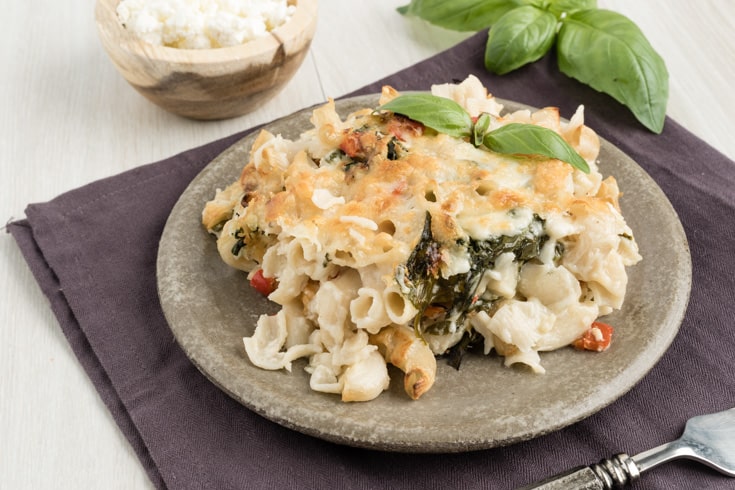
Mac and cheese is one of the most beloved comfort foods — and for good reason. It’s creamy, filling and delicious. But when it’s made with refined carbohydrates and cheese from cow’s milk, mac and cheese can lead to inflammation, digestive issues and weight gain.
That’s exactly why I use healthier, digestion- and figure-friendly ingredients in my mac and cheese casserole, like brown rice pasta, goat cheese and spinach. Using the ingredients in this recipe makes my mac and cheese casserole completely gluten-free; plus, adding antioxidant-rich spinach makes this dish even more beneficial to your health because it limits inflammation in the body and boosts immunity.
So instead of turning to mac and cheese in a box or using processed foods to make your own version at home, try this healthy mac and cheese casserole. I know you’re going to love it and feel good after eating it, too.
The Best Cheese for Your Mac
I prefer to use cheeses made from goat milk instead of cheeses made from cow milk because goat cheese is more easily digestible by the body and better tolerated by people with sensitivities to lactose. Goat cheese is also chock-full of nutrients, like fatty acids that provide the body with energy, help to lower cholesterol and help to treat health conditions like coronary heart disease. (1)
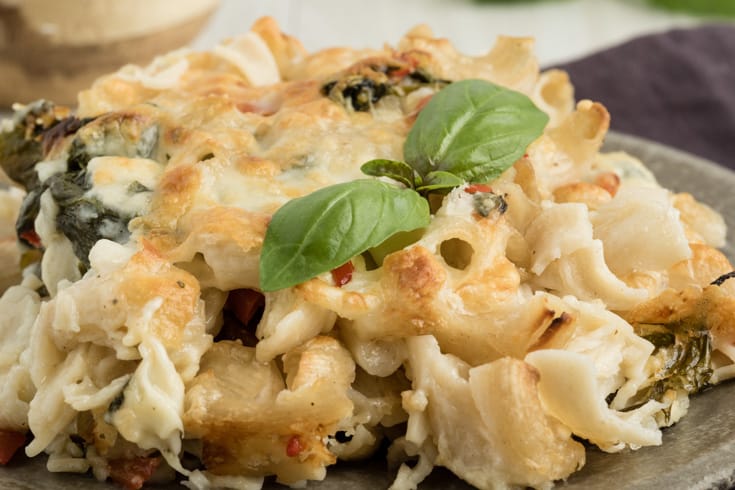
Even though the nutrient content in cow’s and goat milk are similar, research shows that nutrients such as phosphorus, iron, calcium and magnesium are more easily digested and used by the body when consumed in goat milk.
So adding goat cheese to your mac and cheese casserole, instead of the standard choices like cheddar cheese, can help you to fight health issues that result from nutrient deficiencies and is less likely to cause inflammation or other allergic reactions that are common with the consumption of cow milk. (2)
Nutrition Facts
One serving of mac and cheese casserole made using this recipe contains roughy the following (3, 4, 5, 6):
- 141 calories
- 7 grams protein
- 7.7 grams fat
- 11 grams carbohydrates
- 1.3 grams fiber
- 3 grams sugar
- 1,194 IUs vitamin A (51 percent DV)
- 33.7 micrograms vitamin K (37 percent DV)
- 0.33 milligrams vitamin B2 (31 percent DV)
- 0.61 micrograms vitamin B12 (25 percent DV)
- 18.8 milligrams vitamin C (25 percent DV)
- 0.22 milligrams vitamin B6 (17 percent DV)
- 0.55 milligrams vitamin B5 (11 percent DV)
- 0.1 milligrams vitamin B1 (9 percent DV)
- 32 micrograms folate (8 percent DV)
- 0.73 milligrams vitamin B3 (5 percent DV)
- 0.5 milligrams vitamin E (3 percent DV)
- 12.6 milligrams choline (3 percent DV)
- 0.5 milligrams manganese (29 percent DV)
- 13 micrograms selenium (25 percent DV)
- 160 milligrams phosphorus (23 percent DV)
- 319 milligrams sodium (21 percent DV)
- 193 milligrams calcium (19 percent DV)
- 1.3 milligrams zinc (17 percent DV)
- 24 milligrams magnesium (8 percent DV)
- 0.07 milligrams copper (8 percent DV)
- 0.8 milligrams iron (4 percent DV)
- 122 milligrams potassium (3 percent DV)
In addition to goat cheese benefits, here’s a quick glance at some of the top health benefits associated with the other ingredients in my mac and cheese casserole recipe:
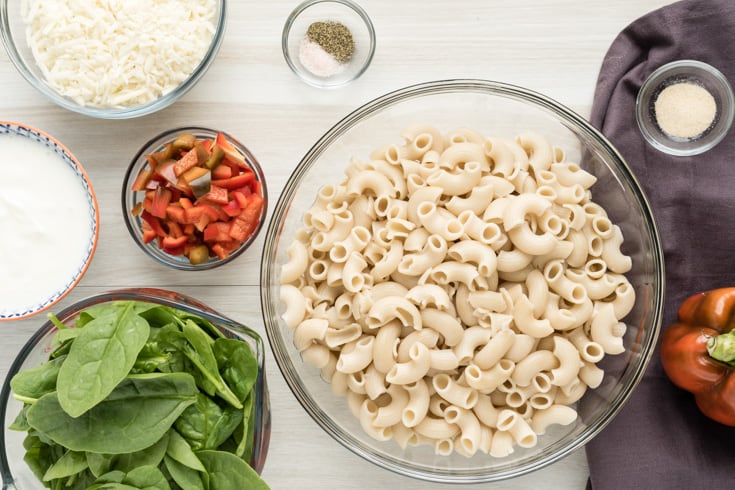
Brown rice pasta: Brown rice pasta is a nutritious gluten-free carbohydrate. Unlike pastas made from refined carbohydrates that mess with your blood sugar levels and can lead to inflammation, brown rice pasta may help lower your risk of diabetes and is safe for people following a gluten-free diet. Brown rice nutrition is quite impressive — it’s a good source of fiber and contains nutrients like manganese, selenium, phosphorus and B vitamins. (7)
Spinach: It’s true that spinach is one of the healthiest foods in the world. It contains powerful antioxidants that protect us against disease and have anti-aging properties. It also promotes detoxification, boosts cognitive function and heart health, helps protect you against diabetes and can potentially help to prevent cancer. (8)
Bell pepper: Bell pepper nutrition includes fiber, antioxidants and vitamins like vitamin C, vitamin A and vitamin B6. Eating bell peppers can help to reduce oxidation that damages your cells, support the health of your eyes, skin, brain and heart and promote a healthy pregnancy. (9)
How to Make A Mac and Cheese Casserole
To start preparing your mac and cheese casserole, preheat your oven to 350 degrees Fahrenheit and grease a 9×13 baking dish.
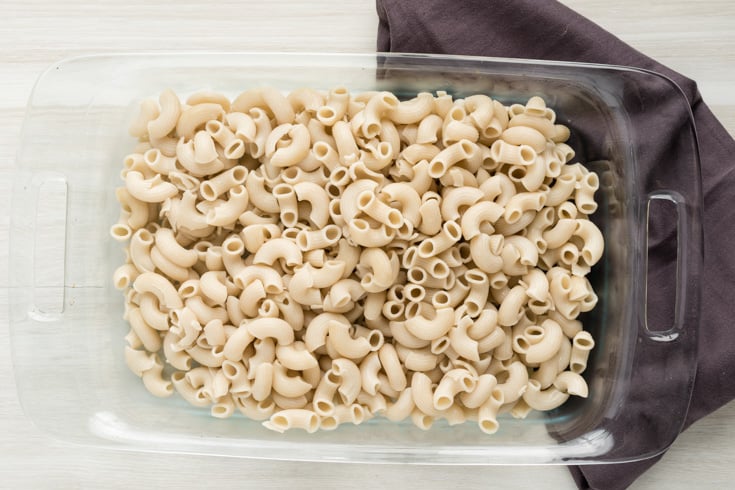
Cook two cups of brown rice macaroni pasta and then add it to the baking dish.
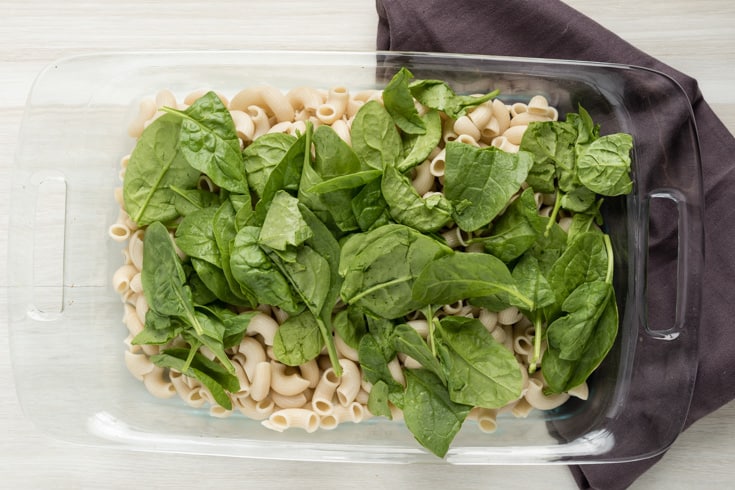
Next, add two cups of fresh spinach on top of the macaroni.
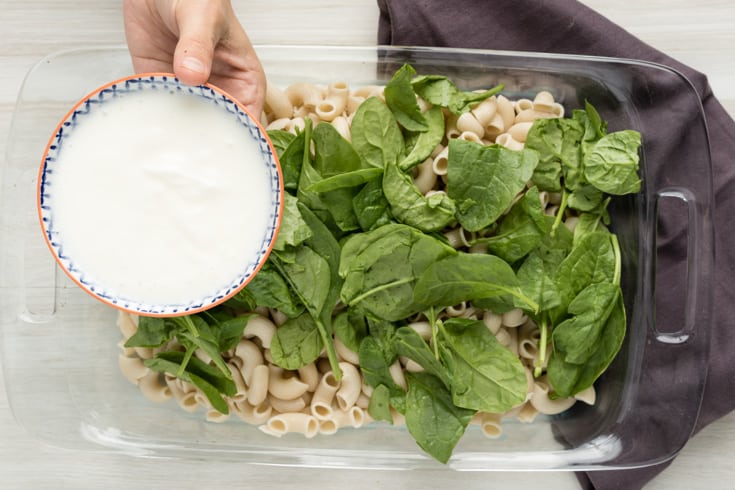
Add ½ cup of plain goat milk yogurt or kefir on top of the spinach.
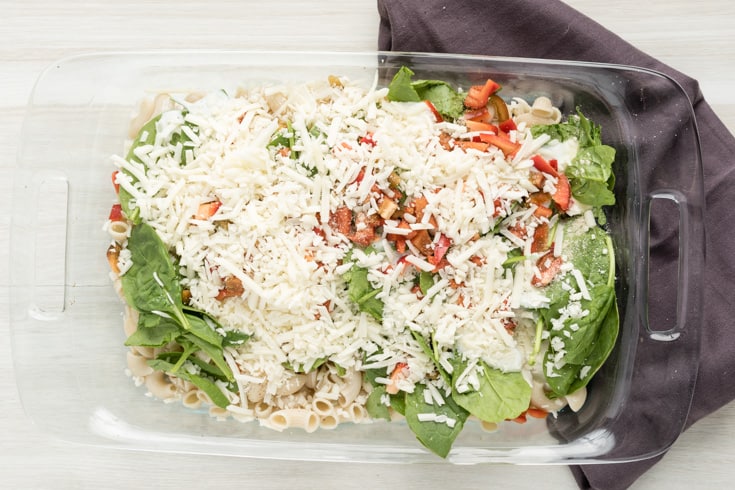
Now, add in the rest of your ingredients: two cups of shredded goat cheese, 1 chopped red bell pepper, ¼ teaspoon of onion powder, ¼ teaspoon of garlic powder, and salt and pepper to taste.
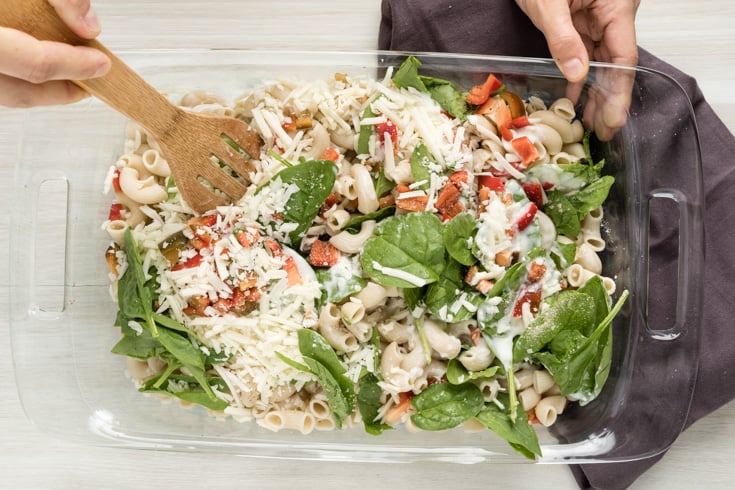
Use a spatula to gently stir your ingredients until they are well-combined.
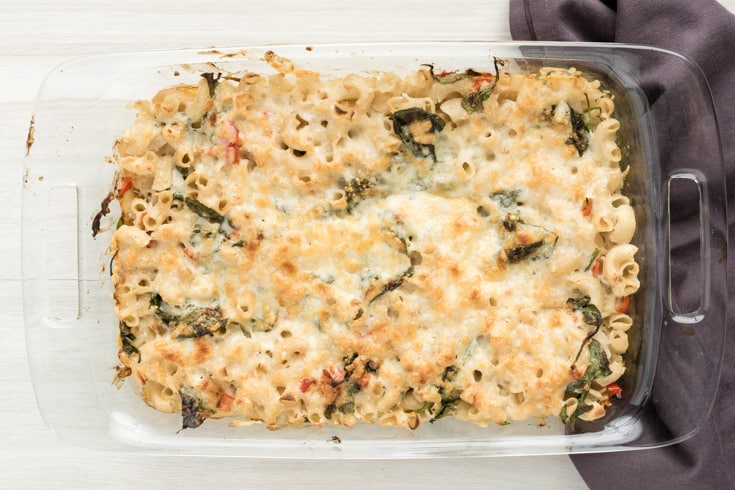
Then cover your casserole with more goat cheese and pop it in the oven for 30 minutes, or until the top is golden brown.
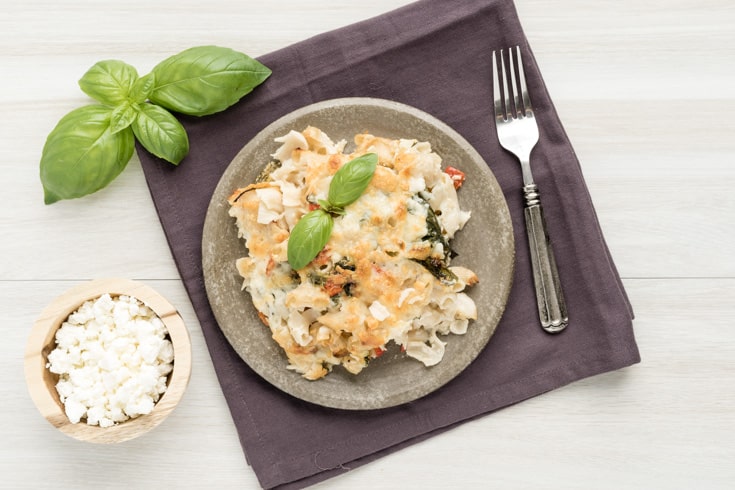
And just like that, your mac and cheese casserole is ready to enjoy!
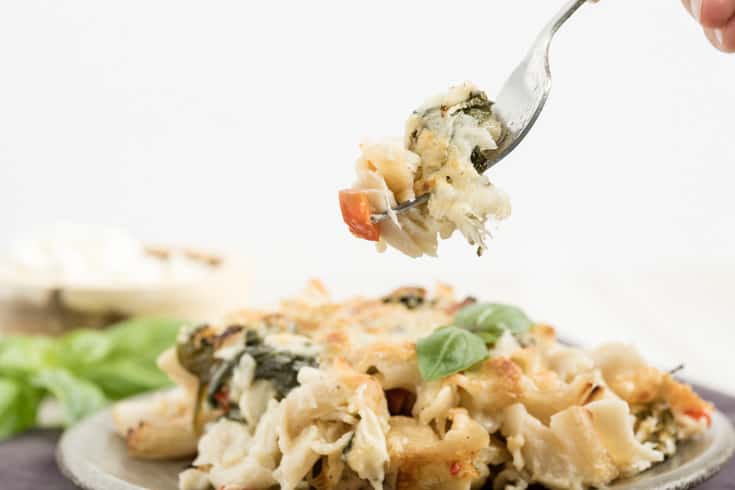
Total Time
35 minutes
Serves
8–10
Meal Type
Diet Type
Ingredients:
- 2 cups brown rice macaroni pasta, cooked
- 2 cups fresh spinach
- 2 cups shredded goat cheese
- ½ cup plain goat milk yogurt or plain kefir
- 1 red bell pepper, chopped
- salt and pepper, to taste
- ¼ teaspoon onion powder
- ¼ teaspoon garlic powder
Directions:
- Preheat oven to 350 F.
- In a 9x13 greased baking dish, add the macaroni noodles.
- Add in the spinach, plain goat yogurt or kefir and the rest of the ingredients.
- Using a spatula, gently stir everything until well-combined.
- Cover with more goat cheese.
- Bake for 30 minutes or until top is golden brown.
Comments
Please keep comments under 200 characters.





I havea goat cheese brick with fried onion flavour I think it would make a good topping with boursins goat cheese with garlic in the noodle mix oh so good onion and garlic with spinach in Mac and cheese
This recipe looks delicious. Do you have a recommendation for a dairy-free cheese? We’re not vegan however we’re trying to decrease dairy and my husband is allergic to goat cheese, which is a bummer because I love it. Wondering if you’ve experimented with any of the ‘nut’ cheeses? I’ve never tried to cook with them and they’re extremely pricey so not sure I wanted to run that experiment unless I had some idea of the outcome.
Thank you ?
What type of goat cheese? Could I muse quinoa pasta and basil instead of brown rice and spinach, how would that work? Just as healthy? Can I freeze it to have for later? Thanks!
What do you think of using sheeps milk feta or manchego?
I heard sheeps milk may even be better than goat in some ways/for some people, and I love both these cheeses.